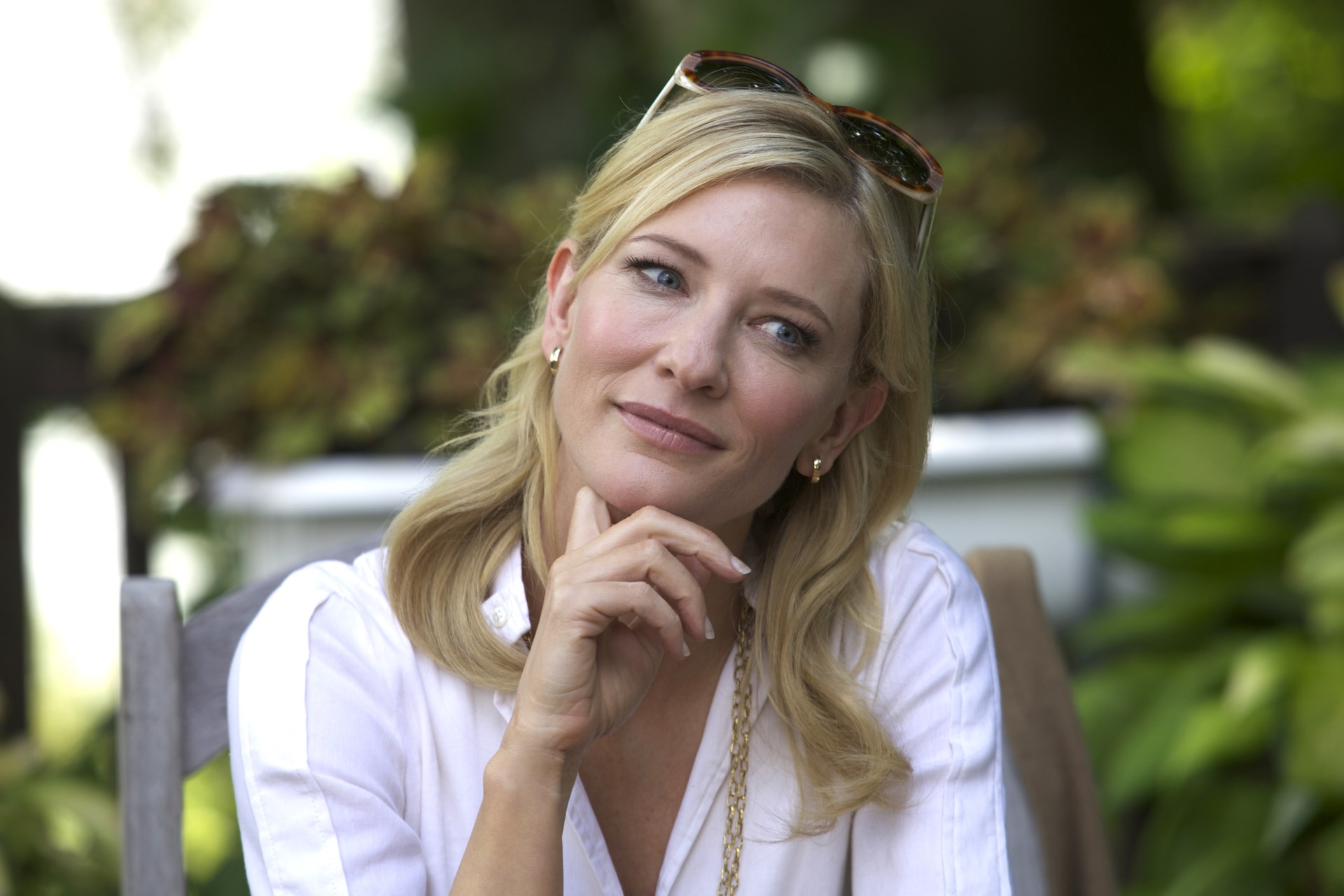Jasmine French—the character that Cate Blanchett is already generating serious Oscar buzz for portraying in Blue Jasmine—behaves like she could have been plucked right off the set of another Oscar-caliber film: Titanic. Jasmine is an obnoxious, narcissistic social climber who, like the Titanic itself, is sinking dramatically throughout the movie.
In Woody Allen’s new release, Blanchett’s magnificent performance is the main attraction in Blue Jasmine, but there’s plenty more to like about the film. She is flanked by a strong cast that includes Alec Baldwin and Peter Sarsgaard; also in the mix are comedians Louis C.K. and Andrew Dice Clay. Though some of its plot intricacies seem slightly far-fetched––notably in the romance between Blanchett and Sarsagaard’s characters––Woody Allen delivers an engaging story that oscillates between light comedic phases and disturbingly heavy ones.
In keeping with the Titanic analogy, Jasmine’s iceberg is the arrest and imprisonment of her extravagantly wealthy husband Hal (Baldwin), who is exposed for being a Bernie Madoff-esque scammer. The meteoric fall from pampered New York trophy wife to menial laughingstock takes a serious toll on Jasmine: she has a nervous breakdown and develops a tendency to publicly talk to herself, in the persona of her former social identity. With few assets left, Jasmine flies to San Francisco to move in with her adopted sister Ginger (Sally Hawkins).
Despite having no other safety net, Jasmine brings her snobbish ways across the coast, and continues to act like she is above the lifestyle of her working-class sibling. Ironically, one of the film’s many flashbacks reveals that Jasmine actually prevented Ginger and ex-husband Augie (Dice Clay) from being moderately wealthy when she convinced him out of pity to invest some modest lottery winnings in one of Hal’s projects rather than starting a business. Now it is Jasmine’s turn to be pitied, as Ginger finds her a receptionist job and tries to transition her back into life without luxury.
Blanchett’s greatest triumph is allowing us sympathize with the insufferable Jasmine—the flashbacks reveal past circumstances that somewhat explain her current instability. Her husband has long been having affairs with many of the women Jasmine socialized with, in addition to his noticeably shady business deals. But Jasmine’s biggest character flaw is her willful blindness towards anything that could threaten the lavish identity she had cultivated for herself. Even as things implode around her and she must confront reality, Jasmine never fully grasps that there is no returning to the illusion of her idyllic life. Blanchett adeptly depicts these inner struggles and exposes an acute sensitivity in an unlikable, self-absorbed woman who is afraid of losing her elite status.
Jasmine’s continuing struggle to regain social composure creates a dramatic feel in Blue Jasmine, but Allen leaves room for comedy in the script as well. Juxtaposing Jasmine with Ginger’s blue-collar crowd often makes for amusing back-and-forth quips between them. The cast’s two comics take advantage of limited screen time to make an impact. Dice Clay’s forceful personality is perfect for unleashing the animosity for Jasmine that Augie still harbors as a bitter victim of Hal’s scheme. C.K. makes a more humorous and subtle impression as a goofy but savvy rich man that woos Ginger at a party Jasmine is invited to.
Allen is quick to raise the stakes—even when things start to seem a little implausible. For instance, Jasmine stumbles upon a widowed diplomat (Sarsgaard) at the party who takes an immediate liking to her, and never bothers to verify any of the substantial lies she feeds him before their relationship gets serious. He also fails to probe her very much after noticing the Xanax she has been taking in his presence—a bit of a red flag for a guy with federal government aspirations. When the movie reaches its harsh climax, marked by another unlikely plot twist, these such developments are a regular occurrence.
It is a classic adage to say that rich people have problems too, but Blue Jasmine finds a way to freshen up that tired idea by unraveling the complicated threads of its unstable protagonist’s story. We may not like Jasmine, but Blanchett still has us rooting for this troubled character to vanquish her inner demons, which periodically bubble to the surface in dazzlingly painful moments. Unrealistic as some of Allen’s plotlines are, the film’s rising action and climax make our acceptance of them well worth it.
Blue Jasmine is playing at Cinema du Parc (3575 Ave. du Parc) until Sept. 19. Student admission is $8.50.








